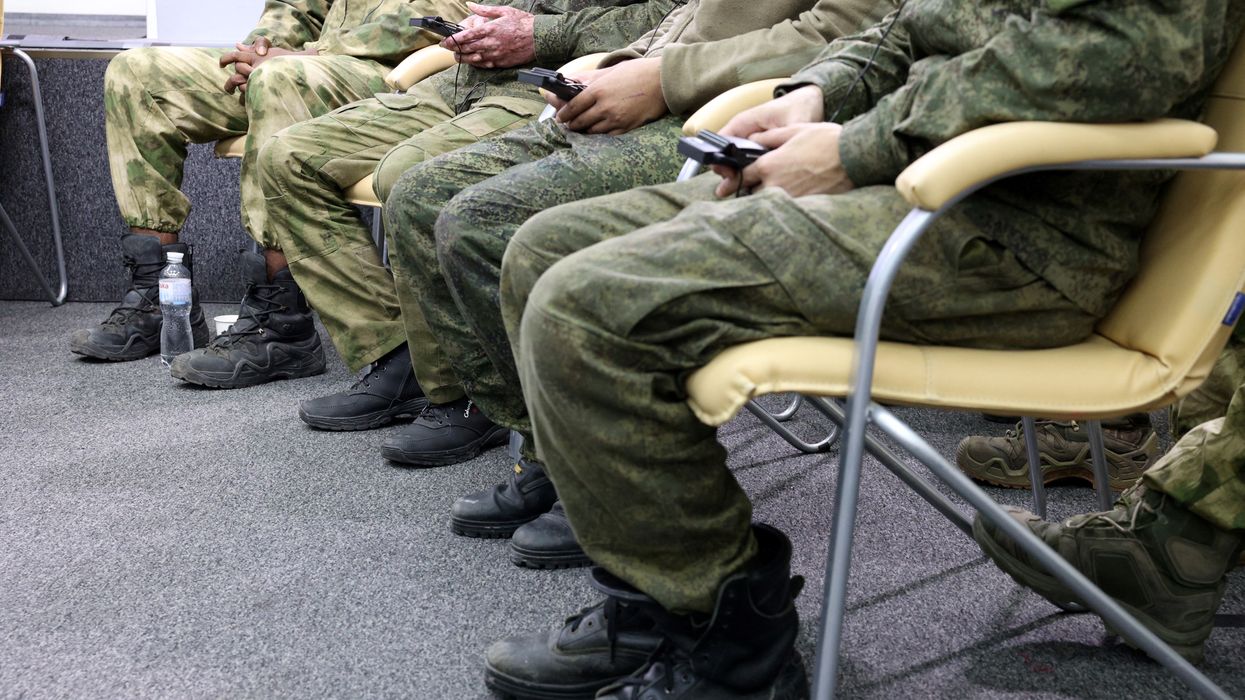YOUNG Bangladeshi men desperate for work have alleged they were tricked into fighting for Russia against Ukraine, with the reported death of a 22-year-old triggering anxious calls from relatives.
Bangladesh’s embassy in Moscow said around a dozen families have contacted them seeking to bring back their sons they allege were duped into joining the Russian army.
“We had no idea we would end up on the battlefield,” said Mohammad Akram Hossain, who claimed he and his brotherin-law had registered with a recruiting agency. They were first promised jobs in Cyprus, before being offered work in Russia. “
The recruiting agency said only work visas for Russia were available, and we agreed to go,” said the 26-year-old, who is now back home in the south Asian nation.
“But we never imagined we would be abandoned like that.”
Unemployment is high in Bangladesh and the economy was hit hard by protests last year that toppled the government.
Worried relatives messaged Bangladeshi diplomats in Moscow after one family said their son Mohammed Yasin Sheikh, 22, was killed on March 27 while serving in the Russian army.
Abul Hashem, Sheikh’s uncle, said the family was called by his friend during the Eid holiday at the end of March.
“Yasin’s friend, who is also fighting for the Russian side and a Bangladeshi, called us on Eid and informed us that Yasin had been killed,” Hashem said.
“Later, we received a call from a Russian commander.”
Sheikh’s family said they gave him money to travel when he left Bangladesh in September 2024, after a broker promised him work with a Chinese company in Russia as an electrician. But, they said, he ended up joining the Russian army in December. “We spent a lot to send him, and now we are waiting for his dead body,” Hashem said.
“We’ve requested the Bangladesh government to take steps so that his mother can bid him farewell.”
AFP could not independently verify the family’s claims.
But Farhad Hossain, Bangladesh’s charge d’affaires in Moscow, said the embassy was aware of the reported casualty. “We learned about Md Yasin Sheikh a few days ago, and have engaged with our Russian counterparts on the issue,” he said, adding that the embassy could not confirm his death, or any other Bangladeshi casualties, and was awaiting a response from Moscow.
But Hossain did confirm that other Bangladeshis had contacted the embassy.
“We’ve been receiving requests from parents seeking information about their sons, and so far we’ve responded to around a dozen requests,” he said.
The war in Ukraine has taken a heavy toll on Russian troops, and Moscow has been on a global quest for more forces to fight. Neither Russia nor Ukraine will say how many foreigners are serving in their militaries or how many they are holding as prisoners of war.
Recruits from south Asia – including India, Nepal and Sri Lanka – have already been reported to have fought for Russia, lured by promises of work.
Hossain said Russian authorities said those fighting on the side of Moscow had signed contracts, were on the payroll and were governed by the rules of war.
He could not confirm how many Bangladeshis were thought to have joined Russia’s army, although one Bangladeshi newspaper cited security sources suggesting there were more than 100.
In Dhaka, Mustafizur Rahman, the superintendent of police at the Criminal Investigation Department, said one Bangladeshi woman had been arrested in connection with alleged human trafficking, and six other cases had been opened. “Operations are ongoing to arrest the others,” Rahman said.
Mohammad Akram Hossain, the man who claims to have escaped Moscow’s army, was among the first to alert Bangladeshi police of the trafficking network he said brought him to Russia.
He said he was part of a group of 10 Bangladeshis who flew first to Saudi Arabia on a pilgrimage visa in September 2024. “After staying there a few weeks, we flew to Russia,” he said, adding he was then given a contract in Russian that he could not understand, but signed anyway.
“From St Petersburg, we were taken by bus to a camp where we spent the night,” he added. “The next morning, they gave military uniforms to some of us and took them away for training.”
Before being taken to fight, Mohammad Akram Hossain said he escaped and managed to fly home.
“I returned after losing several thousand dollars,” he said, adding his brotherin-law remains in Russia in the army. “He calls home regularly, begging us to get him back to Bangladesh.” (AFP)




